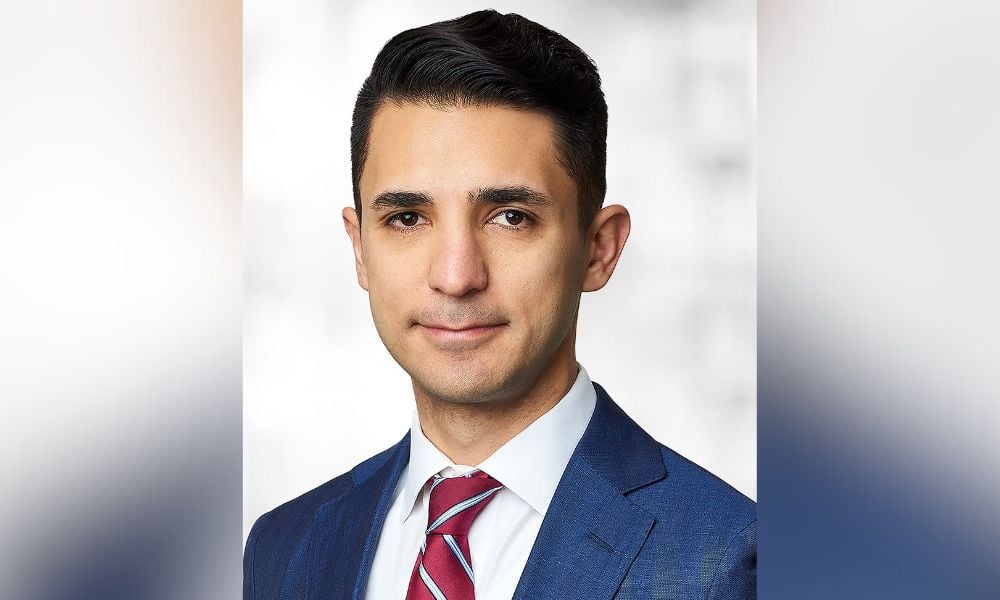H1 2023 saw global deal value drop 40 percent over 2022, coming off 'unprecedented' decade of growth

With higher interest rates at least partially contributing to a 40 percent drop in value in M&A activity globally in the first half of 2023, it’s easy to get gloomy. But lawyer Arash Amouzgar with Blake, Cassels & Graydon LLP says it’s also important to put those figures into the larger picture.
“If you widen the aperture, at least from my perspective, you’ve got to look at these things in context. And the context that we’re working with is we’re coming off a run of unprecedented growth in dealmaking,” says Amouzgar, who is based out of Vancouver and works mainly in private equity.
“It’s not that people aren’t doing deals. It’s that they’re thinking about it more carefully,” he says. “And it’s taking longer to do deals because if it is going to cost you four or five points more to do something, you’re going to want to be a lot more diligent.”
He adds that, in general, he is “bullish” on Canada. “All of the things that have historically made us a really good place to invest are still here – a stable political environment, solid economic systems, and robust pension plans that are very active in the private equity space.
The first half of 2023’s global deal volume for M&A – including minority stake transactions and venture capital financing round – came in at $1.3 trillion (USD), according to Bloomberg, the second lowest in the last ten years. Only H1 2013 and H1 2020 were lower, each with $1.1 trillion.
Amouzgar says that the first half of 2021 and 2022, at $2.6 trillion and $2.2 trillion respectively, were record-breaking within a decade of overall “unprecedented growth.”
However, it’s “understandable” that in an environment where central bankers are using higher interest rates to beat down inflation, coupled with geopolitical risk such as Russia’s invasion of Ukraine, private equity dealmakers are looking at potential acquisitions and trying to figure out their value, or whether now is the time to make a deal at all.”
“The worst word in private equity is uncertainty,” Amouzgar says. “Anytime you create an uncertainty, whether through the macro factors that are going on or by policy, the people that are dealmakers like private equity sponsors, take a step back and get a little nervous because it becomes very difficult to underwrite risk.”
He adds that when considering a deal, potential buyers look at how they can improve the business and later sell it at a profit. “When making that assessment, any one particular risk is probably manageable in making an assessment, but if you have several macro factors all coming together, it’s harder to make predictions.”
Amouzgar notes the inflationary environment has driven up costs, but another factor is the interest rate increases add another dimension. “The rocket fuel that makes private equity go is debt. Whenever private equity finds a business they like, they put in some of their own cash but borrow the rest.”
However, as interest rates continue to rise, with no clear indication of when that might stop, “you’re back to that dirty word - uncertainty.” It’s not even so much that interest rates now are exceptionally high, he says. “We’ve had higher, for example, years like 2007 where there was robust dealmaking. It’s that uncertainty that is the problem.”
As for Canada, Amouzgar thinks that in this climate of uncertainty, he sees a “flight to stability” benefitting the country with private equity, perhaps choosing it over emerging markets that might have interested them in the past.
Canada is back on the table,” he says, not only for inbound dealmaking but outbound too.
“We’re sitting on the door of the US. And each of the last three years, Canada has been the leading deal partner. We have a lot of solid pension plans and a lot of strong businesses in industries that have been the most active in dealmaking - technology and health care, oil and gas.
As a lawyer in this market, Amouzgar says that even when the market is down, clients still need sound legal advice – whether to divest non-core assets or develop structures (such as earnouts) to bridge any valuation gap.
“You’re helping people understand the risk, navigate it and ultimately make an underwriting decision.”










